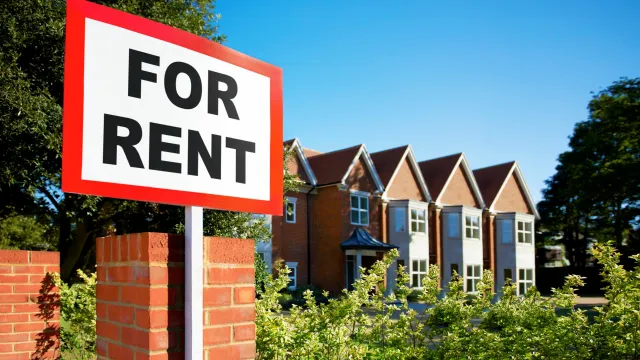August came with harvests and hopes, so did the young students who just embarked their dream study journey on the beautiful British land. Recently, many students have been inquiring me about noteworthy things for their first-time student accommodation in London. With so many consultations left to be met, I decide to compose a comprehensive guide about my UK experiences as a newborn, so as to help you start the journey of studying in the UK happily and smoothly.
The first thing upon arriving in the UK is finding yourself a place to stay. It’s great if you can accommodate in the school dormitory; However, in case where there’s no dormitory available, you can’t just wander and live on the streets since your parents will be hearbroken. Instead, this is the time for you to shoulder the responsibility and start looking for a place. Here’s some practicial tips when you rent a house in the UK.
1. Choosing the Area for Renting

Deciding on a quiet and safe living environment is of great importance, especially for female students who are fresh of the boat in the UK. Safety is the priority since you are now away from your home country and there are no family or close friends around. The UK is a highly diverse country with immigrants from all around the world. Even within a city, there might be areas predominantly inhabited by certain ethnicities.
Hence, when deciding on a rental area, it’s essential to assess the demographics, crime rates, and environmental cleanliness. You can use websites like www.police.uk, where you can input the local postal code to check the local crime situation and find information about responsible police officers. Aim for areas with lower crime rates, as it reflects the overall quality of life in that area.
2. Finding an Agent for Student Accommodation

There are various types of rental agents in the UK, including independent landlords and agency firms. If you are new to the UK, it’s better to approach a physical agency. In every city, you’ll find numerous rental agencies on the main streets. This approach is convenient for seeking advice and addressing problems promptly by visiting the agency. Dealing with independent landlords may lead to tangled issues, and some people, to avoid the hassle, end up losing a significant amount of money. For more details, please click: Recommended Reliable UK Estate Agents.
3. Double-check Your Rent

Rent is a matter of great concern since it directly impacts your finances. When inquiring about rent, don’t forget to check if it includes various bills like water, electricity, and Council Tax (local tax). Council Tax deserves detailed clarification. The UK government mandates a monthly tax for all houses, used for public safety and environmental cleanliness, among other things.
This tax isn’t determined by the landlord or agency; instead, the government categorizes it based on the property’s value, energy consumption, and your area. You can check the specific Council Tax for your area on the UK government’s website: www.gov.uk/council-tax.
Therefore, rent + Council Tax is the amount you have to pay monthly. Make sure to clarify this. If you are a student, obtaining a student certificate from your school and sending it to the local government can exempt you from this tax. However, the tax exemption period corresponds to the duration of your student certificate.
4. Know More about the Deposit

Before signing the contract, the landlord or agent will request a deposit, usually ranging from £50 to £1000, depending on the rental property. The issue of rental deposits has always been a topic of debate, with countless friends complaining about landlords not returning their deposits, ranging from a few tens to withholding the entire amount. UK law stipulates that rental deposits must be placed in a protection scheme.
However, if you rent from a private landlord without involving any agency, the deposit might end up in the landlord’s pocket without any protection, and they might find ways to withhold it from you. Therefore, it’s essential to understand the relevant laws in the UK to protect your legal rights. The specific regulations are that within 30 days of receiving the deposit, the landlord must place it in a protection scheme and inform the tenant of the corresponding series number and a deposit certificate.
After the rental period ends and you move out, both the tenant and the landlord enter relevant information on the storage organization’s website. For example, the landlord can propose deductions for cleaning from the deposit. Once both parties agree, the negotiated amount will be refunded to the tenant. In case of disagreement, the tenant and the landlord can submit evidence separately, and then the deposit storage organization will submit the materials provided by both parties to a third-party arbitration. If the arbitration result is still unsatisfactory, you can file a lawsuit in court. If the landlord has not joined a protection scheme, hiring a lawyer for a lawsuit can result in compensation of three times the deposit amount.
5. Examining the Housing Facilities

Before moving in, inspect the property’s facilities and furniture condition with the landlord or agent. It’s advisable to take photos for evidence if you notice any damage. This is directly related to whether you’ll successfully get your deposit back. During the checkout, landlords tend to inspect the furniture and charge you for damages, and they set the prices. To be on the safe side, always keep evidence in advance.
Apart from furniture, check heating facilities, water heaters, electrical circuits, walls for leaks or scratches, etc. Don’t be hasty and overlook issues, as maintenance costs are quite high in the UK. If there are problems, inform the landlord for repairs before moving in. If you are dealing with a reputable large agency, some of them offer an Inventory Report service, which is a comprehensive report on the property’s items. This report is crucial as it can prevent landlords from unfairly withholding your deposit during checkout.
These pointers will help you navigate the process of renting a suitable place in the UK, ensuring a smooth and pleasant experience during your studies. Best wishes for a successful academic journey in the UK!
6. Signing the Contract

Regardless of whether you’re in your home country or in the UK, after reaching an agreement on renting, you’ll need to sign a tenancy agreement. Legal awareness among Britons is quite strong, and any disputes in the contract will be resolved based on the terms and conditions specified within. Therefore, before signing, it’s crucial to carefully read and understand each clause, especially those with ambiguous or unclear expressions. You can seek the opinion of friends or experienced individuals. Once the contract is signed, it immediately holds legal validity.
If you find unreasonable terms, discuss them with the landlord or agent. Never overlook potential issues, as they might become the source of disputes later on. Typically, a standard rental contract in the UK has a minimum term of 6 months, meaning within the first 6 months from the date of signing, you cannot terminate or leave the agreement without a valid reason. After 6 months, if you need to move out, you simply need to notify the landlord or agent one month in advance.
7. Moving Out

It’s best to plan your move-out date not to fall within the shortest duration specified in the contract. If you exceed the minimum term, you only need to inform the landlord or agent one month in advance. The key aspects of moving out are inspecting the facilities and cleaning, especially if the house has carpets.
If the carpets are soiled, it’s advisable to rent a carpet cleaning machine or hire a specialized cleaning company to ensure they are thoroughly cleaned. Otherwise, your deposit could be at risk. Furthermore, cross-check the facilities in the property against the inventory provided by the landlord when you moved in. At this point, the photos you took before moving in will come in handy.
During your stay, be sure to take care of the indoor facilities and maintain cleanliness, for reasons you understand. Once everything is prepared, initiate the process to reclaim your deposit. Some agencies assist with this process, while in other cases, it depends on the landlord’s preference or requires an online application.
In the UK, the current deposit protection organizations include The Deposit Protection Service (DPS), My Deposit, and The Dispute Service (TDS). You can log in to their official websites to check the status of your deposit. After applying for a refund, it usually takes 10-20 working days for the amount to be returned to your account.
Additionally, here are some common English abbreviations related to renting in the UK:
p/w – per week
p/m – per month
p.p. – per person
m/f – male/female
n/s or ns – non-smoker
Excl – excluding
Incl – including
Furn – furnished
Unfurn – unfurnished
dep. and ref. – deposit and reference
Ch – central heating
Gch – gas central heating
Ech – electric central heating
w/m or w/mach – washing machine
k&b – kitchen and bathroom
nr. BR – near the railway
Dg – double glazing
o.n.o. – or nearest offer
Lastly, I wish everyone the best in finding a safe and satisfactory home in the UK!






